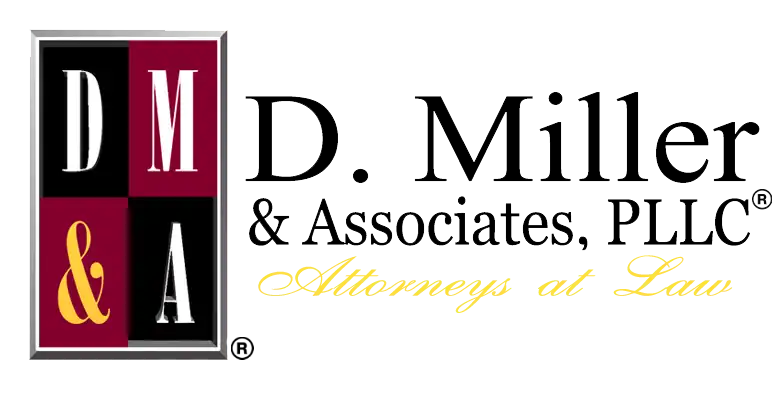If you suffered injuries in a crash caused by a defective tire, we may be able to help you hold the tire company liable for your injuries. A Houston car accident attorney can file an insurance claim or lawsuit to recover the compensation you need and deserve.
The Dangers of a Defective Tire

A defective tire can fail at speed, causing you to lose control of your vehicle. This can lead to a collision, running off the road, or even a rollover accident. Unfortunately, tires with design or manufacturing defects are far too common. If you experienced a sudden loss of air pressure, tread separation, or another catastrophic failure, a defect may be to blame.
State and federal laws allow you to hold the tire manufacturer liable for your damages if a defective tire caused your accident. At D. Miller & Associates, PLLC, a defective tire accident lawyer on our team can review your case and offer an evaluation of the validity of your claim. If we believe you have a strong case against the tire manufacturer, we will handle your injury case on a contingent basis.
Call us today at 713-850-8600 for your free consultation.
Damages Available in a Winning Houston Defective Tire Case

If we can prove the tire defect existed and caused your car accident, we can recover compensation to cover all your accident-related losses and expenses. While the exact damages you suffered may vary based on the facts of your case, some of the most common damages we recover include:
- Medical treatment costs
- Other health care costs
- Lost wages
- Lost earning capacity
- Ongoing care costs
- Repair or replacement of your vehicle
- Out-of-pocket expenses
- Pain and suffering damages
If the judge believes the tire company ignored warning signs of this defect, hid the defect, or otherwise acted grossly negligent, you may also receive punitive damages.
Understanding Defective Tires

Not all tires that blowout have defects. Some are air pressure issues, lack of proper maintenance, or wear. If one of these factors caused your tire failure, it is unlikely to support a defective tire claim. For this reason, it is important that we identify the defect in your tire before we take action against the manufacturer.
Searching for Known Defects
In some cases, we can search similar cases and find reports of similar issues with the same type of tire. This gives us an idea what to look for, and can make our investigation easier.
Under the Transportation Recall Enhancement, Accountability, and Documentation (TREAD) Act, manufacturers have to report all consumer complaints of defects and defects found in quality control to the National Highway Traffic Safety Administration. In addition, they have to notify their distributors. We can try to use these reports to look for known defects in your tire.
While most of these reports do not lead to a recall, some do. If there is an open recall on your tire, there may be a mass tort already underway for those who suffered injuries because of these tires. If not, we can still pursue an insurance claim or lawsuit on your behalf.
Investigating to Identify a Tire Defect
Finding the defect that caused your action through the TREAD reports is rare. In most cases, we identify tire defects through a thorough investigation into the circumstances of your accident. This investigation often requires us to:
- Recover and analyze the tire carcass, your vehicle, and other evidence.
- Call in a survey team who can document the scene, including when and where the tire failed and where the carcass landed.
- Collaborate with engineers who understand tire manufacturing and who can help us understand how and why it failed.
- Call in accident reconstruction specialists who can explain how the tire’s defect led to your accident and injuries.
The most common types of defects that lead to tire failure include defects in design, manufacturing, or installation. The most common way we see modern tires fail is tread separation. This occurs when the two steel belts that strengthen radial tires tear apart. This causes the tread to pull away from the rest of the tire, causing an immediate tire failure.
A number of defects can cause this type of failure:
- Poor design
- Weak materials or poorly mixed rubber components
- Improper or inadequate quality control testing
- Ignored, careless, or negligent manufacturing standards
Proving Negligence and Liability in a Houston Defective Tire Case

If we can prove the tire had a design or manufacturing defect, Texas law gives you the right to hold the manufacturer accountable for your injuries, losses, and pain and suffering damages. We can help you recover this compensation by filing an insurance claim or lawsuit in civil court.
After we conduct an investigation and understand how the defective tire caused your accident, we can approach the tire manufacturer’s legal team and demand a payout. This usually leads to settlement negotiations with their insurance company.
Reaching a Settlement
Because most tire companies do not want to admit defects or wrongdoing, it can be difficult to win this type of claim. However, we do our homework and do not approach the company until we are certain we have the evidence necessary to win your claim.
If we cannot negotiate a fair settlement agreement with their insurer, we may need to file a lawsuit against the tire company to recover the compensation you need to pay your medical bills, cover lost wages, and repair your vehicle.
Talk to a Defective Tire Accidents Lawyer in Houston, TX, Today

At D. Miller & Associates, PLLC, our team can help you understand your options for compensation after a defective tire accident in Houston. We will explain what to expect every step of the way and will do everything we can to recover the money you deserve.
Call our Houston office at 713-850-8600 for a free case evaluation and review.

